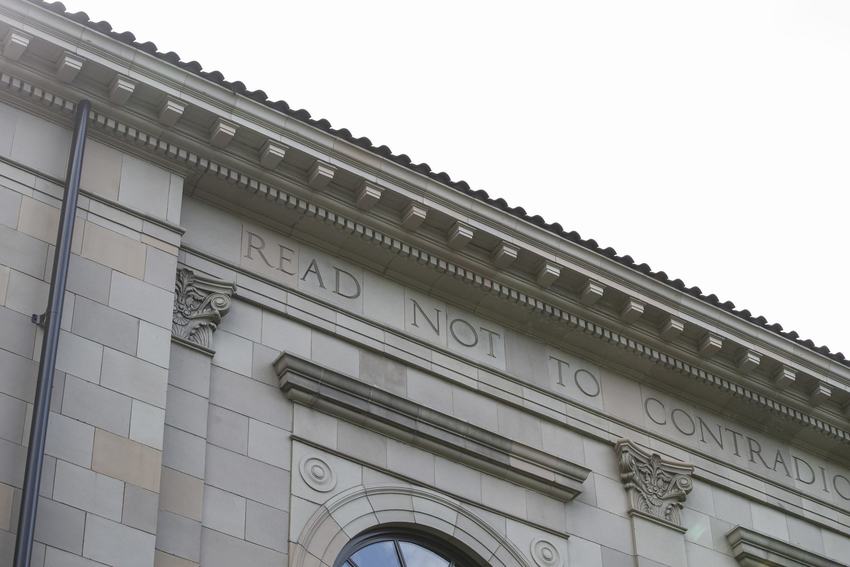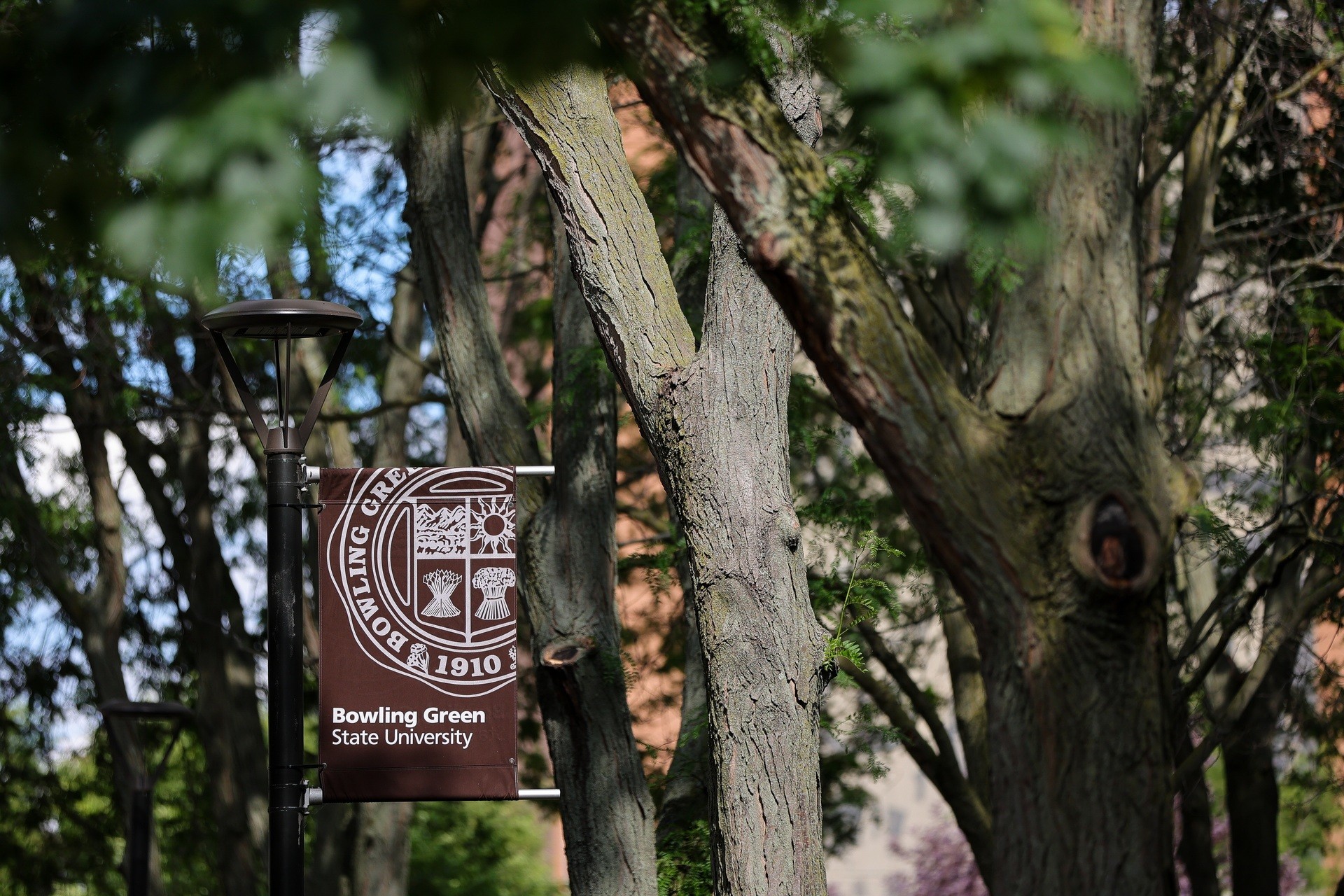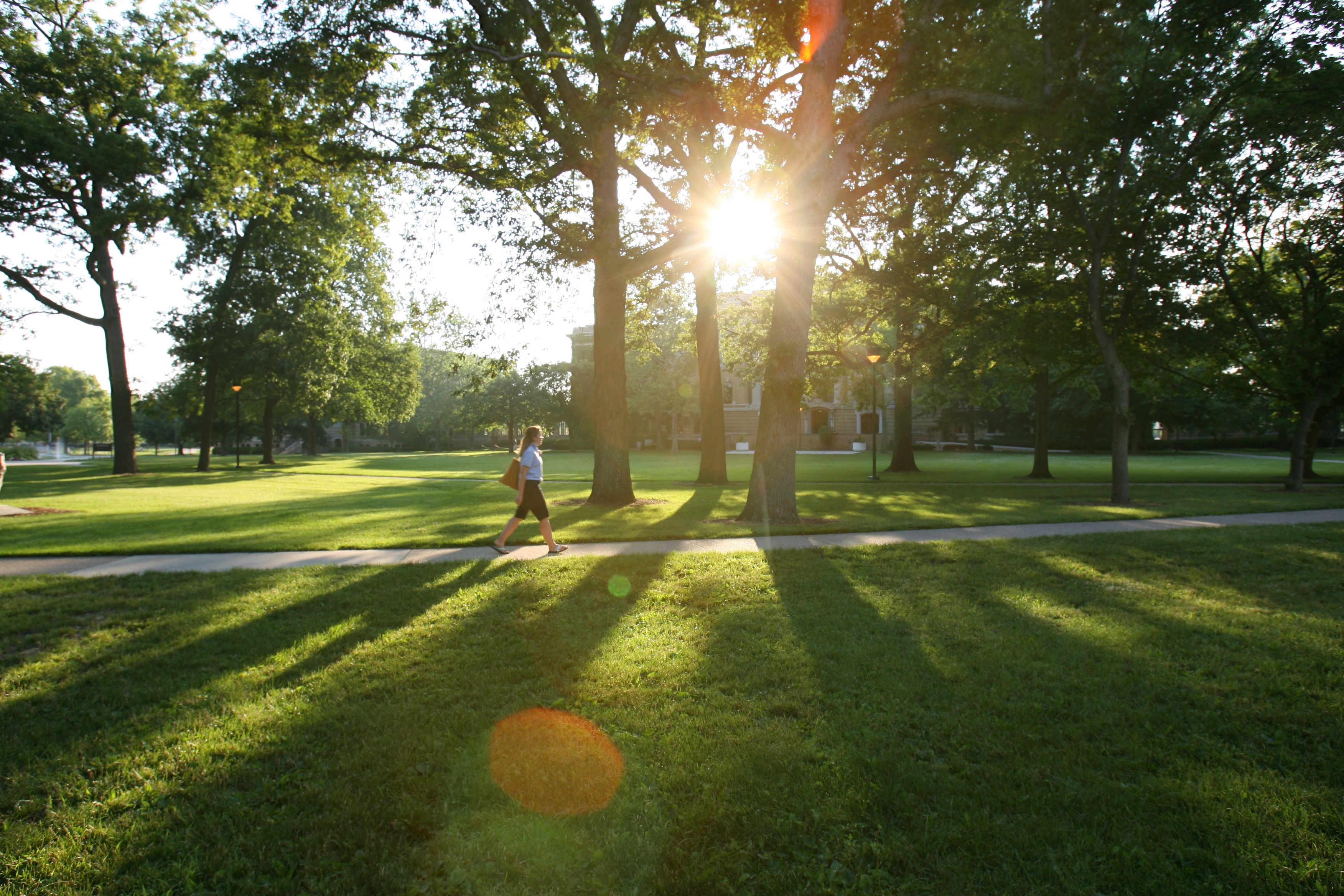Freedom of Expression at Bowling Green State University
As a public university for the public good, Bowling Green State University exists to create and share knowledge, promote open debate and dialogue and be a place where multiple views and perspectives can be weighed and considered.
Per the First Amendment, “Congress shall make no law respecting an establishment of religion, or prohibiting the free exercise thereof; or abridging the freedom of speech, or of the press; or the right of the people peaceably to assemble, and to petition the Government for a redress of grievances.”
Our community strives to ensure that everyone feels valued and respected. Because BGSU is committed to freedom of speech and expression and the rights protected by the First Amendment, there are times the University must allow speech on our campuses that may not align with our values of fostering a welcoming campus environment.
The Office of the Dean of Students coordinates the Expressive Event Team, which may respond to expressive activities to affirm our commitment to free speech and expression while also supporting our students, faculty and staff who may have questions or concerns. Policies and support resources can be found on our expressive activity resource pages for both students and faculty and staff.
Please direct inquiries about free speech and expression to the Office of the Dean of Students at (419-372-2843).
Freedom of Expression at BGSU: Report to the Ohio Legislature
Policies and Resources
BGSU has adopted the Advance Ohio Higher Education Policy 3341-1-14, which prohibits and affirms activities to ensure intellectual diversity and opportunities for all. This policy, along with BGSU Freedom of Expression Policy 3341-2-45 and the Ohio Public Policy on Principles of Free Speech Policy 3341-1-12, establishes the foundation of open dialogue and free inquiry central to BGSU’s mission.
State Protections on Expressive Speech
Referred to as the Forming Open and Robust University Minds Act (FORUM Act), the Ohio General Assembly took action in 2021 and 2022, reaffirming that lawful free speech not be obstructed on campus. These actions are set forth in Ohio Revised Code §3345.0211 through §3345.0215.
- Defines terms and discusses the importance of free expression on campus.
- Specifies that individuals are not permitted to engage in conduct that intentionally, materially and substantially disrupts another individual's expressive activity if it occurs in a campus space reserved for exclusive use or control of a particular individual or group.
- Authorizes reasonable time, place and manner restrictions when restrictions are clear, published, neutral (as to viewpoint and content) and provide for ample alternative means for expressive activities.
- Requires the University to establish a process under which a student, student group, or faculty member may submit a complaint about an alleged violation of free speech by a University employee.
- Requires the University to affirm through its policies, established public policy principles of free speech.
- Students have a fundamental constitutional right to free speech.
- The University is committed to giving students broad latitude to speak, write, listen, challenge, learn, and discuss any issue, subject to division (E) of R.C. 3345.0215.
- The University is committed to maintaining a campus as a marketplace of ideas for all students and all faculty in which the free exchange of ideas is not to be suppressed because the ideas put forth are thought by some or even by most members of the institution's community to be offensive, unwise, immoral, indecent, disagreeable, conservative, liberal, traditional, radical, or wrong-headed.
- It is for the University's individual students and faculty to make judgments about ideas for themselves, and to act on those judgments not by seeking to suppress free speech, but by openly and vigorously contesting the ideas that they oppose.
- It is not the proper role of the University to attempt to shield individuals from free speech, including ideas and opinions they find offensive, unwise, immoral, indecent, disagreeable, conservative, liberal, traditional, radical, or wrong-headed.
- Although the University greatly values civility and mutual respect, concerns about civility and mutual respect shall never be used as a justification for closing off the discussion of ideas, however offensive, unwise, immoral, indecent, disagreeable, conservative, liberal, traditional, radical, or wrong-headed those ideas may be to some students or faculty.
- Although all students and all faculty are free to state their own views about and contest the views expressed on campus, and to state their own views about and contest speakers who are invited to express their views on the campus of a state institution of higher education, they may not substantially obstruct or otherwise substantially interfere with the freedom of others to express views they reject or even loathe. To this end, the University has a responsibility to promote a lively and fearless freedom of debate and deliberation and protect that freedom.
- The University shall be committed to providing an atmosphere that is most conducive to speculation, experimentation, and creation by all students and all faculty, who shall always remain free to inquire, to study and to evaluate, and to gain new understanding.
- The primary responsibility of faculty is to engage an honest, courageous, and persistent effort to search out and communicate the truth that lies in the areas of their competence.
- BGSU does not take action against students, student organizations, faculty staff or visitors based on their viewpoints and the expressive activities for which they engage.
- BGSU does not prohibit expressive activities in outdoor areas.
- BGSU allows for members of the campus community to spontaneously and contemporaneously assemble and distribute literature.
- A student, student group, or faculty member may submit a complaint about an alleged violation of free speech by a University employee at See It. Hear It. Report It.
PBS Explains: Free Speech and College Campuses
Updated: 08/28/2025 09:33AM




